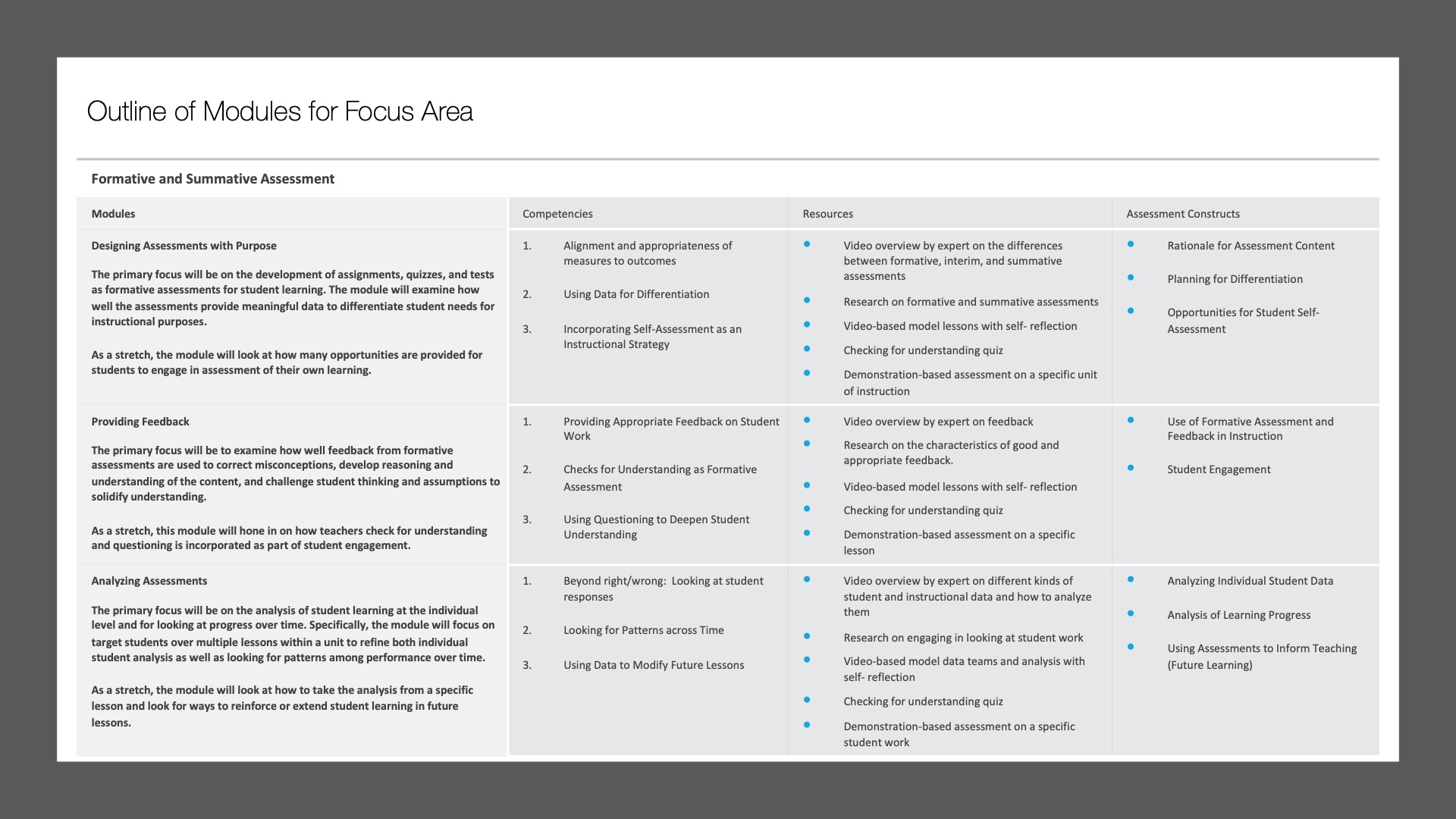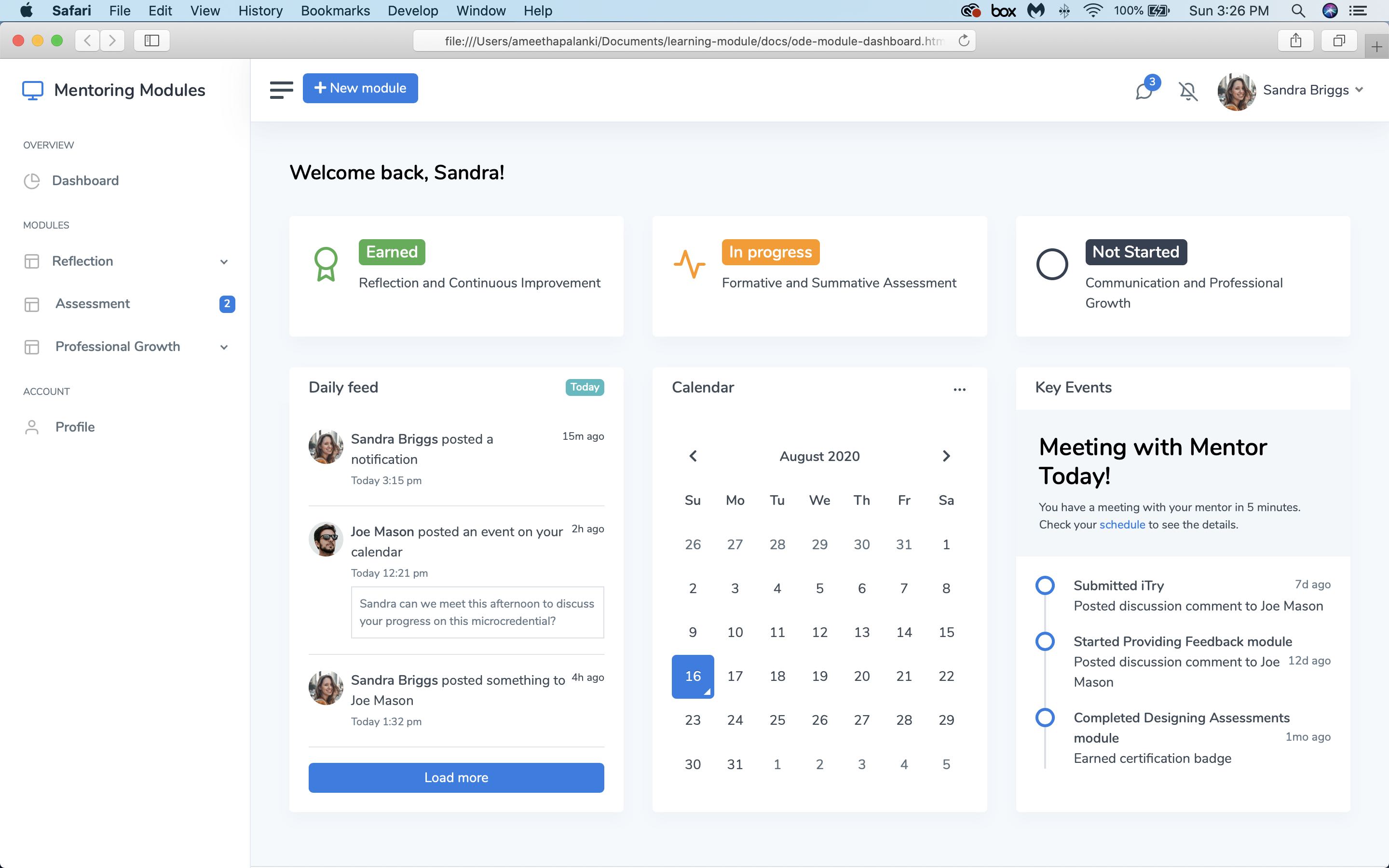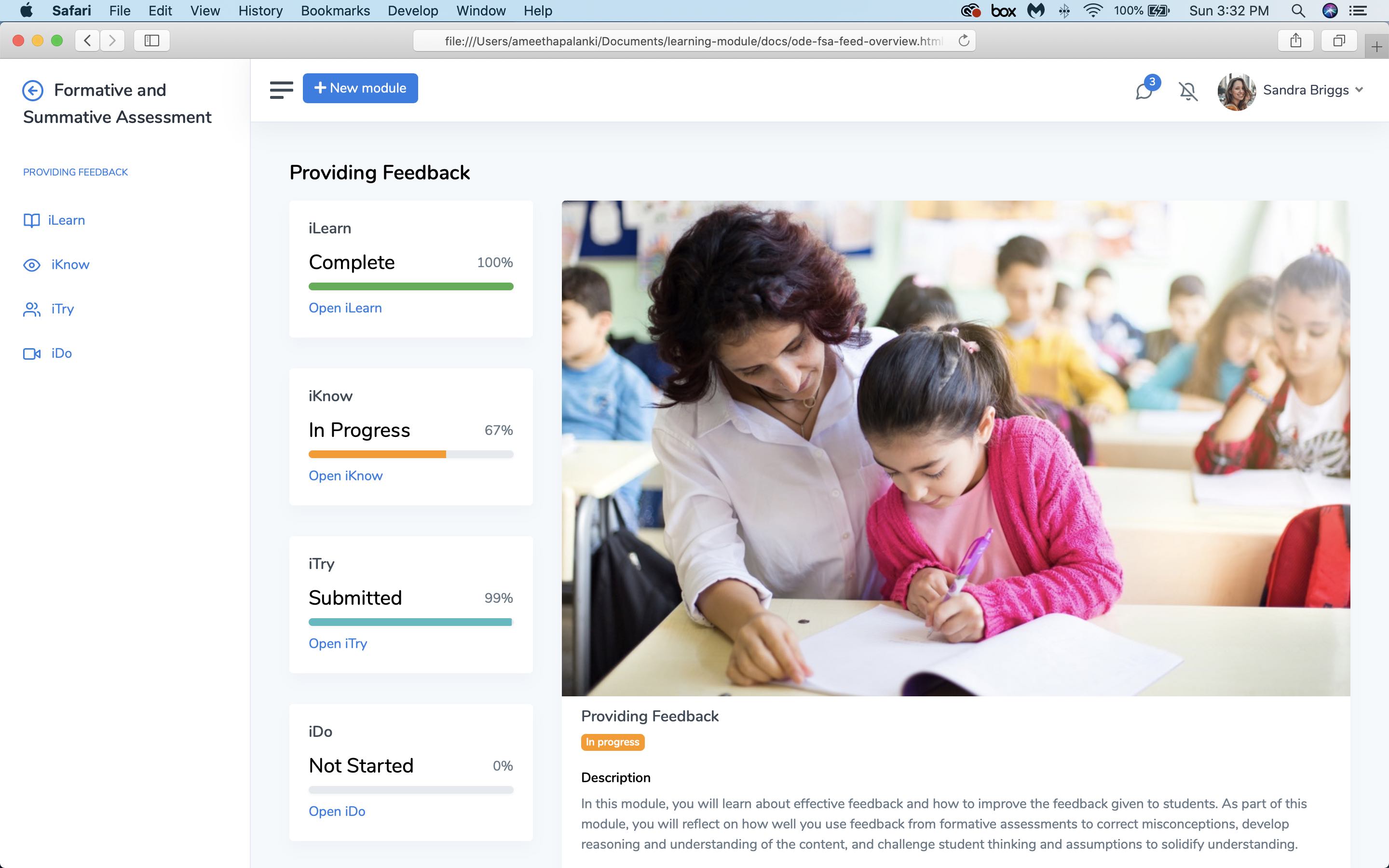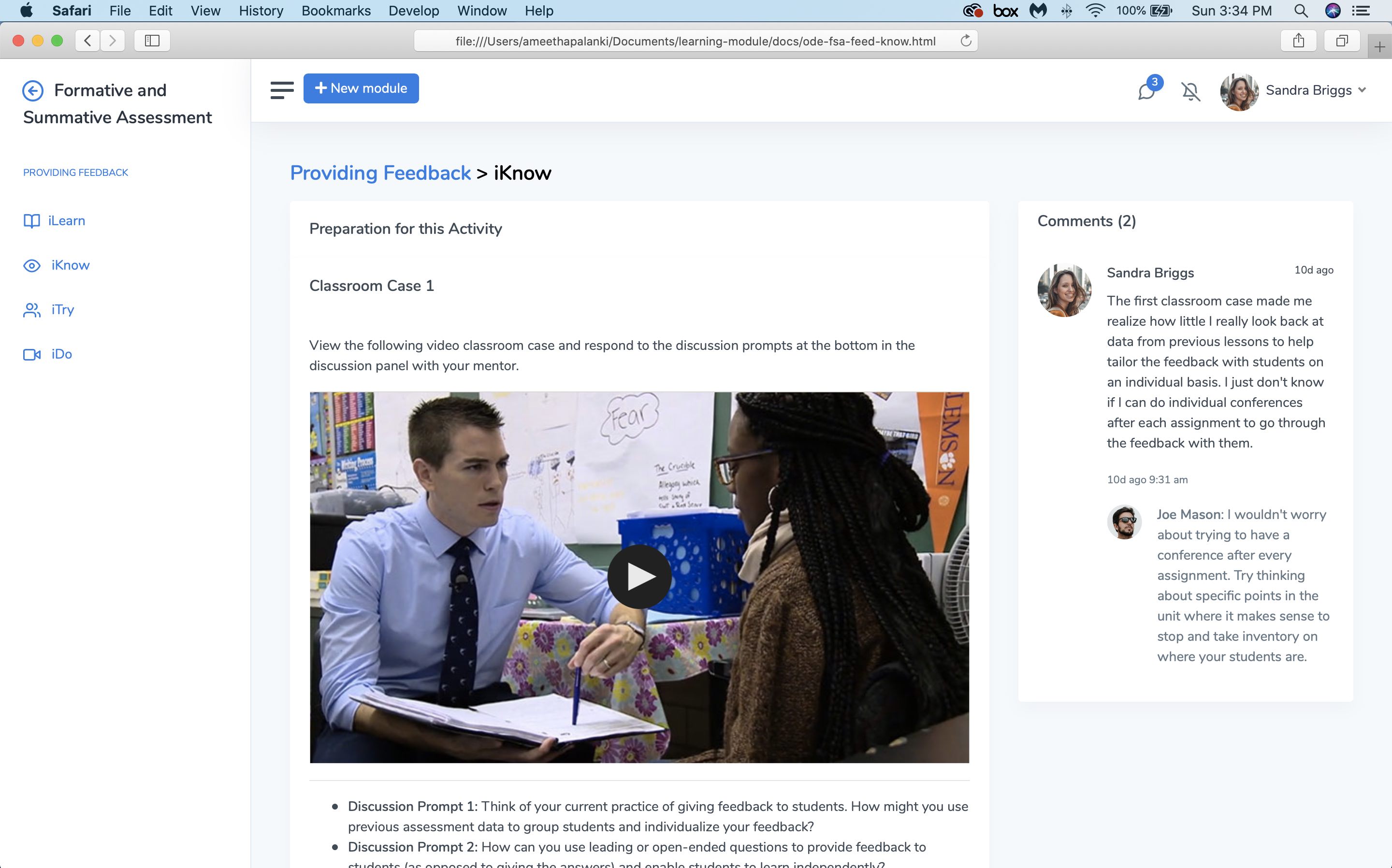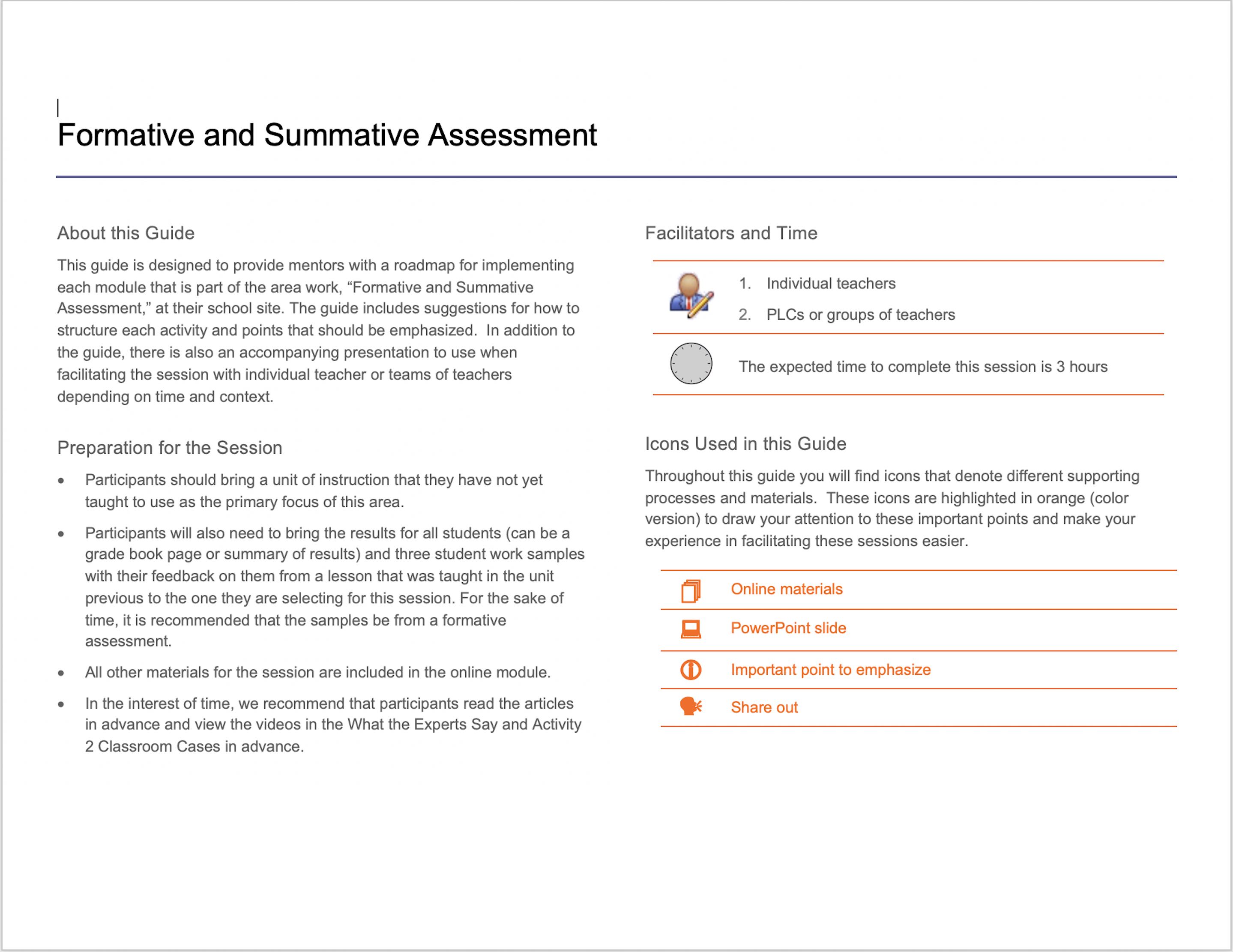Case Study:
Instructional Design of Online Mentor Modules
Mentor modules for teacher induction
CLIENT - OHIO DEPARTMENT OF EDUCATION

The Challenge
Most teachers who leave the profession do so within the first three years due to the isolation and challenges of working in the classroom as the only teacher of record. The Ohio Department of Education instituted an induction program that includes assigning a mentor to each beginning teacher. To support mentoring, a set of modules were developed including learning content and assessments for mentors to observe and give feedback to beginning teachers in core aspects of effective teaching.
The Outcome
To support mentoring, a set of modules were developed including learning content and assessments for mentors to observe and give feedback to beginning teachers in core aspects of effective teaching.
Focus
The Ohio Department of Education (ODE) has a three-year induction program that teams up an experienced teacher with a beginning teacher to help them through the first years of teaching. At the end of induction, beginning teachers are required to demonstrate teaching competencies to become fully licensed in the state. ODE wanted to ensure that mentors were helping teachers to develop their teaching repertoire in research-based practices.
This project developed modules that consisted of both learning content and assessments. The modules would be made available through the state’s LMS for mentors and beginning teachers to use.
Process
The requirements for full professional licensure in the state required beginning teachers to demonstrate their proficiency in key teaching competencies in lesson development and instructional delivery, assessment and feedback, and communicating with families. To support mentors in working with teachers, the state wanted to develop online modules for use in their LMS. The process for the design and development of these modules included:
Research. Analyzed state teaching standards and current assessments for initial teacher competencies. Reviewed literature on best practices in core competency areas. The next step was to meet with stakeholders representing the different personas that would be interacting with the mentor modules to understand their requirements.
Design. A learner-centered design model was developed and stakeholders were engaged in giving feedback and refining the model. This learner-centered design for each module was based on a progressive disclosure learning model to address varied starting points for teacher development. Facilitated design sessions with the stakeholders to determine the model, competencies, and personas to create a learning model.
Iteration. Based on the feedback and design, a strategy for the design of the modules was developed as well as the actual experience for each module. The initial drafts of the modules were modified based on technology decisions and limitations as well as access to content and materials.
Execution. The modules were then developed for use in the client’s LMS. Curated learning resources including research, videos, and case studies and crafted assessments for each module. Developed supporting materials to assist mentors in the use of the modules. The limitations of the technology prohibited the full design from being implemented; however, a prototype of one of the modules is provided here to understand how the module would work in a modern system.
The Deliverable
Released nine learning modules for three micro-certification badges that required teacher demonstration of key teaching competencies to earn the badge.
Provided authentic opportunities for feedback from mentors to teachers around understand the research base behind the key competencies as well as on the teacher's use of those strategies in the classroom.
Developed a process to ensure accuracy in observing teacher practice by mentors and created rubrics to support teacher observation and feedback.
View the ODE sample module
